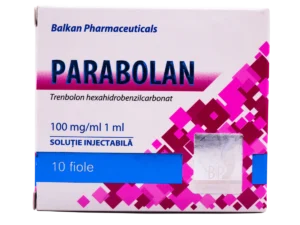
Introduction to Sports Nutrition and Dietary Supplements
Understanding the significance of sports nutrition and dietary supplements is crucial for athletes and fitness enthusiasts. This introductory section will shed light on these two intertwined topics, providing a foundational overview for the uninitiated and a refresher for the experienced.
Sports nutrition is a specialized field of dietary practice that focuses on the nutritional needs of athletes. It incorporates a well-planned diet and hydration strategy to enhance athletic performance, recovery, and overall health. It’s not just about what athletes eat, but also about when and how they consume their nutrients. The primary components of sports nutrition include macronutrients (proteins, carbohydrates, and fats), micronutrients (vitamins and minerals), and fluids.
Dietary supplements, on the other hand, are products intended to supplement the diet and provide nutrients that may not be consumed in adequate amounts from food alone. These can include vitamins, minerals, amino acids, herbs, and other botanicals. In the context of sports, dietary supplements are often used to improve performance, increase strength, enhance recovery, and support overall health.
However, the use of dietary supplements in sports is a contentious issue. While some supplements are accepted as beneficial, others are criticized for their potential adverse effects. Furthermore, the lack of regulation in the supplement industry raises concerns about the quality, safety, and efficacy of these products.
Despite these challenges, sports nutrition and dietary supplements remain integral parts of athletic performance and fitness. In the following sections, we will delve deeper into these topics, exploring their intricacies, latest research findings, and practical applications.
Delving Deeper into Sports Nutrition
Sports nutrition is a science that involves the study of nutrition and diet with regards to enhancing an individual’s athletic performance. It is a well-acknowledged part of many professional sports training regimens, being equally crucial in amateur training and performance. Sports nutrition focuses its studies on the type, as well as the quantity of fluids and food taken by an athlete.
The Role of Macronutrients
Macronutrients are the cornerstone of sports nutrition. They provide the energy needed to perform physical activity and the building blocks for muscle recovery and growth. Carbohydrates are the body’s primary energy source during high-intensity exercise. Proteins are vital for muscle repair and growth, while fats provide a concentrated source of energy for longer, lower-intensity workouts.
Importance of Micronutrients and Hydration
Micronutrients, although needed in smaller amounts, play significant roles in maintaining energy production, hemoglobin synthesis, bone health, immune function, and protection of body against oxidative damage. Hydration, too, is a critical aspect of sports nutrition. Athletes need to stay well-hydrated before, during, and after exercise to prevent dehydration and electrolyte imbalances, which can impair performance and potentially lead to serious health issues.
Understanding Dietary Supplements in Sports
Dietary supplements are often used by athletes and fitness enthusiasts to enhance performance, increase strength, speed up recovery, and maintain overall health. However, the use of supplements should not replace a balanced diet but should complement it.
Commonly Used Supplements
Protein powders, creatine, caffeine, beta-alanine, and branched-chain amino acids (BCAAs) are among the most commonly used supplements in sports. Each of these supplements serves a specific purpose, from aiding muscle recovery to enhancing energy production and improving exercise performance.
Considerations and Risks
While some supplements have been found to be beneficial, it’s important to note that not all supplements are created equal. Some may contain banned substances, while others may not deliver the promised benefits. Therefore, athletes should consult with a healthcare professional or a sports dietitian before starting any supplement regimen.
Conclusions
In conclusion, sports nutrition and dietary supplements play a vital role in enhancing athletic performance and promoting overall health. However, it’s crucial to approach these aspects with a well-informed understanding and professional guidance. While sports nutrition focuses on providing the right fuel for the body’s needs, dietary supplements can fill in the gaps but should not replace a balanced diet. As research in these areas continues to evolve, athletes and fitness enthusiasts should stay updated and make educated decisions to achieve their performance goals safely and effectively.
Practical Recommendations
Here are some actionable recommendations for athletes and fitness enthusiasts to optimize their sports nutrition and dietary supplement usage.
Individualize Your Nutrition Plan
Every individual is unique, and so are their nutritional needs. Factors such as age, gender, body composition, fitness level, and type of sport all influence nutritional requirements. Consult with a sports dietitian to develop a personalized nutrition plan that meets your specific needs and performance goals.
Focus on Whole Foods
While dietary supplements can complement a nutrition plan, they should not replace whole foods. A balanced diet rich in lean proteins, whole grains, fruits, vegetables, and healthy fats provides a wide range of essential nutrients that supplements alone may not offer.
Stay Hydrated
Proper hydration is crucial for optimal performance. Monitor your hydration status by checking the color of your urine. Light yellow or straw-colored urine typically indicates good hydration. Remember to drink fluids before, during, and after exercise to replace the water lost through sweat.
Use Supplements Wisely
If you choose to use dietary supplements, do so wisely. Research the supplement thoroughly, check for any banned substances, and consult with a healthcare professional before starting. Remember, supplements are meant to supplement a balanced diet, not replace it.
Monitor Your Progress
Keep track of your progress. Monitor changes in your performance, recovery, body composition, and overall health. This will help you assess the effectiveness of your nutrition plan and make necessary adjustments.
By following these recommendations, athletes and fitness enthusiasts can maximize their performance, recovery, and overall health through effective sports nutrition and sensible use of dietary supplements.






